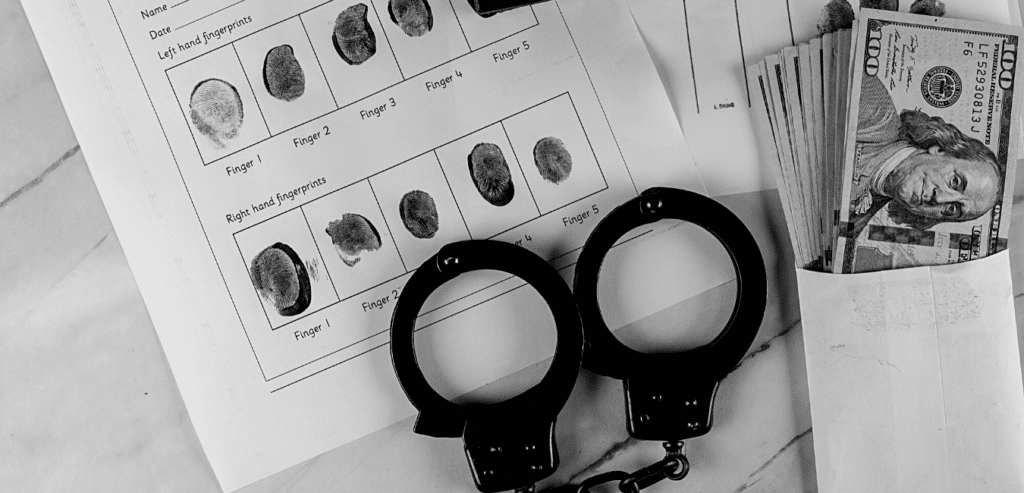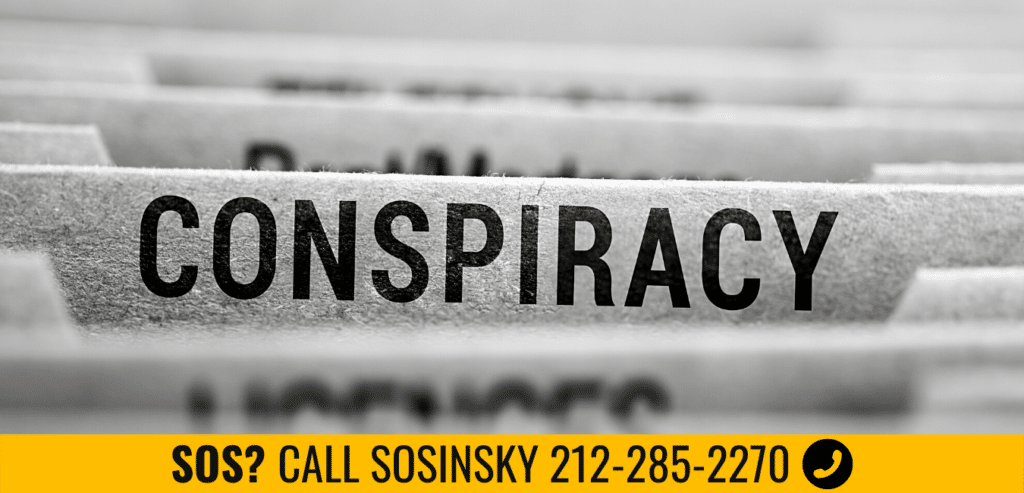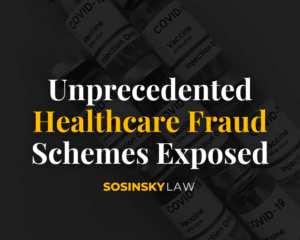NYC Federal Conspiracy Lawyer
Federal Conspiracy Defense Lawyer In New York
Clarence Darrow famously stated, “If there are still any citizens interested in protecting human liberty, let them study the conspiracy laws of the United States.” A Supreme Court Justice almost one hundred years ago described the criminal conspiracy statutes as the “darling” of federal prosecutors. The fact is that conspiracy to commit another federal offense is one of the most commonly charged crimes in federal court. In dozens of statutes, federal law permits severe punishment for those who agree to commit federal crimes whether or not they are successful in actually carrying out the crimes contemplated — or even came close to doing so. In almost any case in which the government charges two or more people participating in a criminal venture, you can expect to see conspiracy charges as well as those for the underlying substantive offense. While some conspiracy statutes cap the punishment for such illicit agreements at five or ten years, the most frequently invoked conspiracy charges, those seen in narcotics, racketeering, and terrorism cases, permit sentences that are the same for the completed offense — often enough decades in prison.
With the stakes so high, if you or a loved one believes that you are under federal investigation for or have been arrested and charged with participation in a conspiracy to violate federal laws, you will surely need a skilled, experienced criminal practitioner at your side, fighting the government every inch of the way. For more than three decades, NYC federal conspiracy lawyer Fred Sosinsky has successfully represented men and women in connection with federal conspiracy investigations and prosecutions stemming from alleged financial wrongdoing, narcotics trafficking, and public corruption. As with all federal cases, if Fred is retained early on in an investigation, it may be possible to avoid federal charges altogether. If charges are brought, Fred will work tirelessly to produce the best result possible. And Fred is not at all afraid to take an appropriate case to trial to clear his client’s good name. Give Fred Sosinsky a call today to discuss your case.

What is a Criminal Conspiracy Under Federal Law?
Most federal conspiracy statutes provide that a person commits the crime of conspiracy when there is an agreement between two or more persons to commit a criminal act, he or she intentionally joins the illicit plan and at least one member of the conspiracy takes some action — known under the law as an “overt act” — in furtherance of the agreement.
There are a number of important legal principles that apply to conspiracy charges. First, there is no requirement that there be an actual oral or written agreement between parties or that any particular words be used in order to establish the existence of the unlawful conspiracy. The agreement to commit the crime may be proven circumstantially from the evidence presented. Second, it is not required that the crime or crimes which are the goal or the object of the conspiracy be completed or even that such crimes come close to the commission. Third, to be charged as a member or participant in a criminal conspiracy, it is not necessary that the accused be aware of the identity of all or most of the other members of the conspiracy or all of the criminal activity undertaken by co-conspirators. Fourth, under the law, guilt for a conspiracy charge does not require that the accused play any particular role in the offense. Thus, even those who had a minor involvement in the overall conspiracy may be convicted and held responsible for the substantive acts that are the object of the criminal plan and even for reasonably foreseeable acts of co-conspirators that go beyond the object of the conspiracy. Fifth, because a conspiracy is considered a continuing crime, the statute of limitations for prosecution will not start to run until dates after the last overt act to further the crime takes place. Sixth, the law permits the statements of co-conspirators to be offered in evidence against any defendant charged in the conspiracy even though he or she did not know of or participate in the conversation. Seventh, one may be prosecuted for a conspiracy charge even after prosecution for the substantive crime that was the object of the conspiracy. And lastly, a conspiracy charge may not be based upon an illicit agreement made with an undercover agent or confidential informant. The law requires that two or more actual co-conspirators form the criminal plan. l
Notably, there are certain federal conspiracy statutes that do not require proof of an overt act in furtherance of the conspiracy. One such statute is the so-called federal false claims act. These specific circumstances can be used to your advantage with the help of an experienced NYC federal conspiracy crime lawyer.
There Are Defenses to Federal Conspiracy Charges
A number of defenses to conspiracy charges may be viable in any given case.
First, there may be a defense of “withdrawal” presented if it can be shown that the accused made clear to other members of the conspiracy that they wanted out prior to the commission of the goal of the agreement and took steps consistent with withdrawal.
Second, one may have a defense if they were merely present at places and times when others discussed, planned, or even carried out the crimes but if they did not agree to participate. Even knowledge of others’ intentions to commit the crime alone does not make one a member of a conspiracy.
Third, occasionally a person is forced or coerced into entering into a criminal conspiracy. Where this can be established, a successful defense may be asserted.

Sentencing For Federal Conspiracy Charges
The federal criminal code contains a number of statutes punishing criminal conspiracies. Some of these statutes permit sentences upon conviction of up to five years or ten years in federal prison. For example, one of the broadest statutes, which punishes any conspiracy to defraud the United States, permits up to a five-year sentence. However, for a conspiracy involving false claims against the United States, including defrauding an agency by filing a false claim, this carries a potential sentence of up to ten years. Conspiracy to commit murder under the federal racketeering statutes authorizes a sentence of up to ten years in federal prison. A conspiracy to commit money laundering is punishable by up to twenty years in prison. The same punishment of up to twenty years is authorized for a conspiracy to commit an interstate robbery or extortion offense under the so-called Hobbs Act.
For the most frequently encountered federal crimes, however, the minimum and maximum sentences under the law are precisely the same upon conviction for a conspiracy to commit the offense as they are for a conviction for the substantive crime itself. This means that for the vast majority of cases in which a criminal conspiracy is charged, the potential punishment for that crime may be every bit as harsh as for the substantive offense itself. Thus, one convicted of conspiracy to commit narcotics distribution will face the prospect of decades or even life imprisonment even if no conviction for substantive distribution is obtained.
As with all federal felonies, the determination of one’s sentence following a conviction in federal court will be dependent on a number of factors, including the operation of the United States Sentencing Guidelines. The guidelines, while not binding on a judge, recommend a sentence to the court which must be considered along with a host of other variables in arriving at a just sentence. For conspiracies, one would look to the guidelines that apply to the offenses that are the goal or objects of the criminal agreement to determine the guideline. For narcotics cases, this means the most significant factor is the total amount of drugs involved. For economic crimes, this will be the total financial loss occasioned by the crime. The court will then consider all of the hopefully abundant mitigating information and evidence offered by the defense in settling on its sentence.
Speak With An Experienced Federal Conspiracy Lawyer in NYC Today
Because federal conspiracy charges cover such a wide range of conduct and are easier to prove than substantive crimes which are their goal, anyone charged in a conspiracy case will need an aggressive and seasoned criminal lawyer to fight off these accusations. NYC federal conspiracy attorney Fred Sosinsky has handled hundreds of conspiracy prosecutions in his 30 plus years of practice and has the extensive experience necessary to win. Contact Fred now for a free consultation.
SOS? CONTACT SOSINSKY
NYC Criminal Defense

Unprecedented Healthcare Fraud Schemes Exposed
Unprecedented Healthcare Fraud Schemes Exposed: A Glimpse into the Recent DOJ Crackdown In a groundbreaking move, the Department of Justice has unveiled criminal charges against
